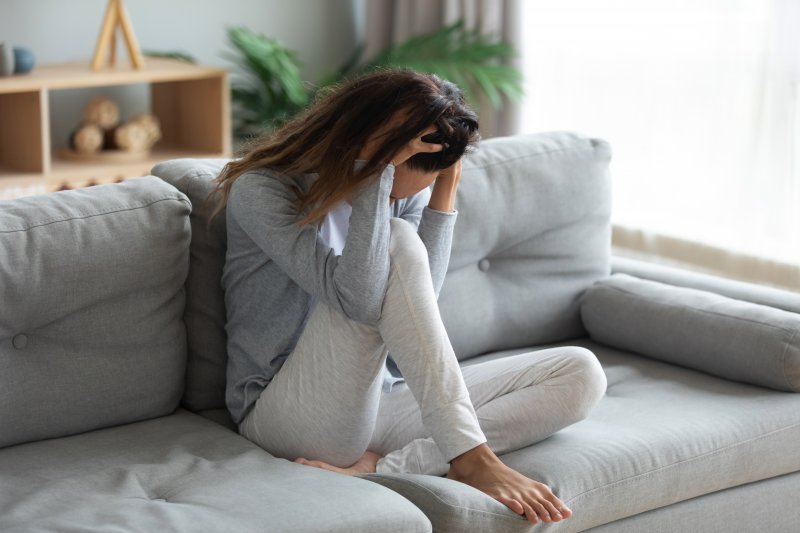
It should come as no surprise that 2020 has led to many people experiencing increased anxiety and sleep deprivation. With media outlets continuously reporting the number of COVID-19 cases in states throughout the United States and officials considering additional steps to combat the spread of the virus, the connection between anxiety and sleep apnea is becoming more and more evident. Let a sleep dentist explain why it’s necessary to seek treatment for both sooner rather than later.
The Link Between Sleep Apnea and Anxiety
When experiencing sleep apnea, a blockage occurs within the airway and prevents adequate airflow. As a result, the brain must attempt to alert the body to breathe. The process that ensues is one that involves increased heart rate and blood pressure, resulting in an individual suddenly waking and gasping for air. Because these episodes can happen once or even a hundred times each night, it keeps a person from being able to get adequate sleep.
When sleep deprivation and chronic fatigue are present, the brain is unable to deal with stress like it normally would. The continuous waking throughout the night due to a blockage in the person’s airway can negatively impact the brain’s neurochemicals, effectively altering the way they think and act.
A study published in the journal SLEEP in 2005 stated that individuals diagnosed with sleep apnea were much more likely to experience symptoms that included anxiety, post-traumatic stress disorder (PTSD), psychosis, and dementia, as opposed to those who were not formally diagnosed.
When symptoms associated with sleep apnea begin to appear (i.e. restlessness, fatigue, panic, feelings of suffocation, rapid breathing, and even chest pain), it can signal feelings of anxiety. For an individual already living with this common disorder, the inability to sleep and/or breathe can exacerbate their problem.
How Can They Be Treated?
Although the two play off each other, worsening symptoms and making life a bit more difficult, the two can (and should) be treated separately but also in a timely manner. A sleep dentist in Powell can provide helpful treatment options that address both issues based on a person’s individual needs.
It is natural to start with a sleep study that allows a sleep expert to monitor and analyze the data compiled from a patient’s eye movement, heart rate, blood oxygen levels, airflow, and muscle activity while asleep overnight. Once this information is evaluated, the sleep dentist can recommend a proper method of treatment designed to improve breathing, encourage better sleep patterns, and as a result, decrease the potential for anxious thoughts.
While a CPAP (Continuous Positive Airway Pressure) is a common device used to treat sleep apnea, its bulkiness can make it difficult for an anxious patient to maneuver. If this happens, an oral appliance can be used for treatment. Not only are these customized to the patient’s oral cavity, but they are comfortable to wear and effectively reposition the tongue and/or lower jaw to ensure there is no blockage within the airway.
Should you believe you are experiencing feelings of anxiety and are unable to achieve adequate rest each night, don’t wait to seek treatment. Find a local sleep dentist who can provide the treatment you need.
About the Practice
Powell Dental Group is comprised of a team of expert dentists and staff who
can offer patients a chance at revitalized health. Offering sleep apnea
treatment, we can work to identify the root cause of why you’re not resting at
night and offer valuable solutions to not only help you achieve the sleep you
deserve but also combat additional problems you may be experiencing such as anxiety.
To learn more about our treatment options, contact us at (614) 436-4433 or visit our website.